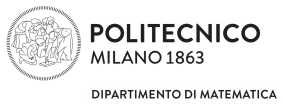Stochastic control theory
In the stochastic framework, optimal control problems in finite and infinite dimensions are studied. We consider Markovian state processes of diffusive or pure-jump type, as well as non-Markovian processes. We are also interested in the case where the state is only partially observed. We use forward-backward stochastic differential systems of equations to obtain a probabilistic representation formula for the value function, known as non-linear Feynman-Kac formula. We exploit this latter representation in order to characterize the value function in terms of a Hamilton-Jacobi-Bellman equation and to study its regularity in order to prove the existence of an optimal strategy in feedback form. We use these tools to treat various kind of problems: optimal control problems for stochastic partial differential equations, for equations with delay, for path-dependent equations, optimal control problems with partial observation, ergodic control problems, singular perturbation problems, mean-field games, optimal control problems of McKean-Vlasov type.
Deterministic control theory
In the deterministic setting, we are mainly concerned with infinite dimensional problems. We are interested in optimal control problems governed by semilinear evolution equations. The general framework of our analysis allows to apply our techniques to models involving different type of PDEs, including the so-called equations with memory influenced by the past values of the variables in play, accounting for the delay effects experimentally observed and providing a faithful description of reality in many situations like heat propagation in real conductors or isothermal viscoelasticity. We work on classical problems of the optimal control, with particular attention to the state constrained case, largely employed in applied sciences. Existence and regularity results of optimal solutions, non degenerate necessary optimality conditions, regularity properties of the value function, are some of the subjects analyzed. The tools developed, as neighboring feasible trajectories theorems, are suitable also for constraints having nonsmooth boundary.
Related research fields
The research lines of our department cover other aspects of control theory, for the numerical methods see MOX group.
List of collaborators
E. Bayraktar (University of Michigan), P. Briand (Université Savoie Mont Blanc), R. Buckdahn (Université Bretagne Occidentale), P. Cannarsa (Università di Roma Tor Vergata), A. Cosso (Università di Bologna), H. Frankowska (Institut de Mathématiques de Jussieu, Paris 6), M. Fuhrman (Università di Milano), F. Masiero (Universita' Milano-Bicocca), M. Mazzola (Institut de Mathématiques de Jussieu, Paris 6), H. Pham (Université Paris Diderot), F. Russo (ENSTA-ParisTech), G. Tessitore (Università di Milano-Bicocca), R. Vinter (Imperial College, London).
